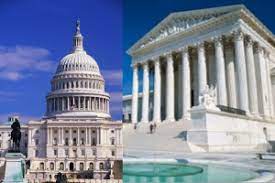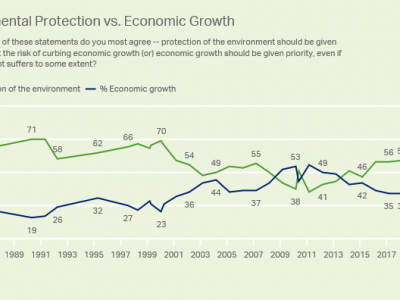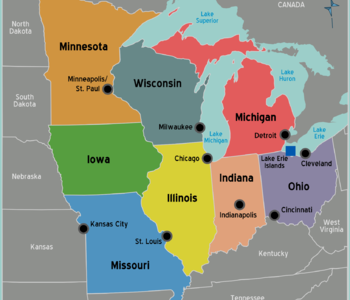Climate Policy
Mexico y el Cambio Climático
There is much to celebrate today. But Mexican climate policy may not be one of them.
This being Cinco de Mayo, it seems like an appropriate time for a look at Mexico’s climate challenges. Mexico’s carbon emissions are about the same as those of Texas, the highest-emitting US state. Per capita emissions, however, are far lower, given Mexico’s much larger population. Mexico is also highly vulnerable to climate change. What’s the …
Continue reading “Mexico y el Cambio Climático”
CONTINUE READINGA Bad Week for Biden, and for Climate Action
First House progressives, and next conservative Justices, poked a stick in the spokes.
President Biden hoped to go to the international climate summit in Glasgow with momentum behind him. He wanted to reestablish US credibility with concrete progress on climate change. Instead, the ability of the US to take action on climate change is shrouded in doubt. Biden suffered an embarrassing defeat at the hands of members of …
Continue reading “A Bad Week for Biden, and for Climate Action”
CONTINUE READINGTowards Optimal Climate Policy, Part II
The future of effective climate policy requires balancing equity, efficiency, political feasibility, and technological innovation
In the prior blog post in this two-part series, I talked about how current debates on climate policy that are focused on equity and efficiency are inadequate. Today, I’ll explain how we might advance political feasibility through climate policy, how that is connected to technological innovation, and how we must necessarily balance between all four …
Continue reading “Towards Optimal Climate Policy, Part II”
CONTINUE READINGPublic Opinion and the Limits of Climate Policy
There’s a simple reason why it’s so hard to take bold climate actions nationally.
Gallup has studied environmental attitudes in America for several decades. Their historical compilation is very revealing about our present political situation. It sheds light on why it’s been so hard to develop momentum for real change at the national level, and also about why there’s so much more of a push for change within the …
Continue reading “Public Opinion and the Limits of Climate Policy”
CONTINUE READINGTowards Optimal Climate Policy, Part I
Moving the debate beyond equity and efficiency
As Congress debates two large pieces of legislation – both a bipartisan infrastructure bill and a partisan reconciliation package – a key question is the extent to which either piece of legislation (assuming it is enacted) addresses climate policy. And the recent flooding in Europe, the wildfires in the western US and Russia, and more …
Continue reading “Towards Optimal Climate Policy, Part I”
CONTINUE READINGAmerican Soil
Soil is an important carbon sink. It’s literally going down the drain, eroding away.
Today is Earth Day. Let’s talk about something earthy: the dirt under our feet. When I was a kid growing up in central Illinois, the topsoil was black and went down about a foot. When I was a little older and tried gardening, I was amazed at the fertility of the soil. When I’ve gone …
Continue reading “American Soil”
CONTINUE READINGKeeping It All In the Ground?
Exploring legal options for congressional and executive actions to terminate existing fossil fuel leases on federal lands.
The Biden Administration has set aggressive goals for the reduction of greenhouse gas emissions from the United States. And a necessary component for any long-term plan to address greenhouse gas emissions from the United States is reducing and ultimately eliminating the emissions from fossil fuels produced on federal lands. Why is this such a critical …
Continue reading “Keeping It All In the Ground?”
CONTINUE READINGRecalculating the Cost of Climate Change
The Biden Administration has already started to revisit this important issue.
“The social cost of carbon” isn’t exactly a household phrase. It’s an estimate of the harm caused by emitting a ton of CO2 over the many decades it remains in the atmosphere. That’s an important factor in calculating the costs and benefits of climate regulations. For an arcane concept, it has certainly caused a lot …
Continue reading “Recalculating the Cost of Climate Change”
CONTINUE READINGPeer Production of Climate Action
Wikipedia and climate actions by cities and states have more in common than you might think.
Wikipedia is celebrating its twentieth birthday. When it was launched, this effort to create an encyclopedia seemed like a joke compared with Microsoft’s big-money effort, which was called Encarta. Encarta is long gone but Wikipedia has thrived beyond anyone’s expectations. Today, Wikipedia has fifty-five million entries, with 270,000 active editors a month. While imperfect, the …
Continue reading “Peer Production of Climate Action”
CONTINUE READINGRenewable Energy in the Midwest
Under Trump, it’s been a mixed picture, with progress except in two states. What were Midwestern states doing during the four years Trump was busy promoting fossil fuels? States with Democratic governors are making progress. Of the three states under unified Republican control, two are trying to prop up coal. Ohio has decreased support for …
Continue reading “Renewable Energy in the Midwest”
CONTINUE READING










